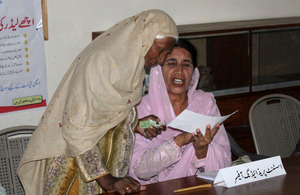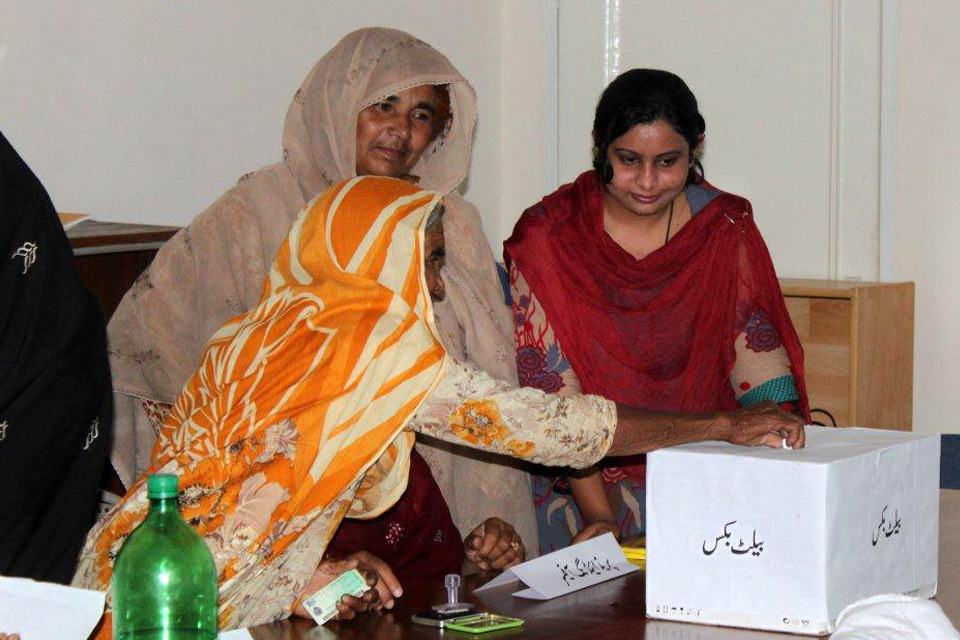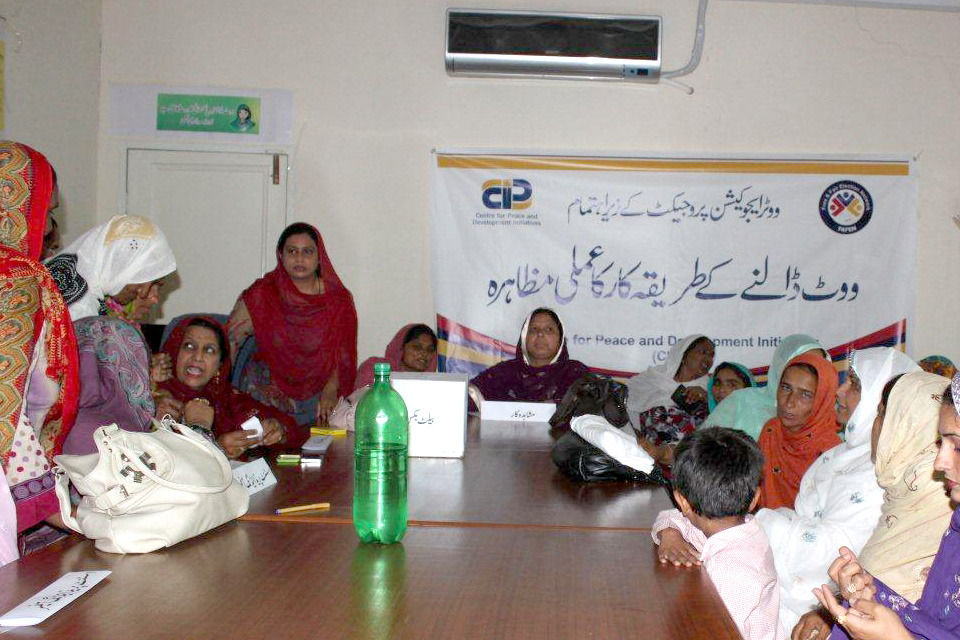Pakistan elections: Educating women on their fundamental rights
UK aid supported voter mobilisation programme targeted at women highlights the importance of voting and gets rural women interested in exercising their rights

Mock voting exercises are a simple and effective way of educating women about how to cast their votes. Picture: DFID Pakistan
Kanwal, 23, is one of numerous social mobilisers helping to educate women about the importance of their right to vote and encouraging them to do so in the upcoming general elections. Over the past month she and her colleagues have been regularly engaging with women in nearby villages through community meetings and door-to-door campaigns.
Giving women a voice

Kanwal, a social mobiliser, has been promoting women’s participation in the elections by conducting mock voting exercises in communities. Picture: DFID Pakistan
Women voter mobilisation is an integral part of the UK government’s Supporting Transparency, Accountability and Electoral Processes (STAEP) programme, which is being delivered by The Free and Fair Elections Network (FAFEN) and The Asia Foundation (TAF). These interactions not only help mobilisers to educate women but also to gauge the issues that hold them back from becoming part of the electoral process.
“The response has been very positive. Most of the women we have met are very open to the idea of casting their vote. In fact, they’re excited. Our engagement with the community drives all these women to push the message forward on their own,” said Kanwal, who works with women in Chak-66, Sargodha. This was one of 564 areas identified where there was 0 women voter turnout in the 2008 general elections.
Their work reveals that in Punjab the major reason for women’s lack of participation in the 2008 elections was not having Computerized National Identity Cards (CNICs), followed by the security situation and absence of female only polling stations. Kanwal says that many of these issues came out through community meetings with men. She believes the presence of local politicians and tribal elders was extremely helpful in convincing them about the importance of women taking an active part in the elections, since they felt their concerns would be taken seriously.
“It’s positive that neither men nor women here have an issue with voting – it’s just little things that are getting in the way. Everyone is gradually beginning to understand how women’s participation could increase the number of votes, hence making them an important part of the electorate”
Simple solutions

A women's gathering where Kanwal goes through the process on what would take place on election day. Picture: DFID Pakistan
Another aspect of the voter mobilisation strategy is mock exercises, which are a more interactive way of engaging with the community. Women gather at places such as schools or hospitals where mobilisers set up replica polling stations complete with ballot boxes and plaques for various polling officials. Kanwal picks volunteers to act as election officials. Women then line up as they would on election day and go through all the procedures before casting their mock ballot.
Kanwal believes this is a simple and practical way of educating women about the vote casting procedures.
“After spending hours working in the fields at home, these sessions are a welcome relief for these women. They bring along their children, learn about how to cast their vote and have a wonderful time.”
The campaign has led to the registration of around 1,000 women voters in Melowal. But Kanwal feels a lot of work still needs to be done.
“Voting is a fundamental right. If women are deprived of it simply because they are unaware of certain aspects is wrong. They should strive to exercise this precious right. They need to realise the importance of their vote and that it can bring about change.”
Overall the UK’s support for democracy in Pakistan has helped register more than 122,000 women so they can vote in the upcoming elections. More broadly, this support is working to increase voter turnout by 2 million voters.